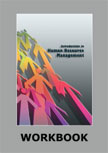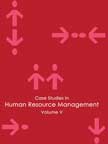The Indian Call Center Journey
|
|
ICMR HOME | Case Studies Collection
Case Details:
Case Code : HROB005
Case Length : 08 Pages
Period : 1999-2001
Organization : -
Pub Date : 2002
Teaching Note : Available
Countries : India
Industry : IT Enabled Services, BPO
To download The Indian Call Center Journey case study
(Case Code: HROB005) click on the button below, and select the case from the list of available cases:

Price:
For delivery in electronic format: Rs. 200;
For delivery through courier (within India): Rs. 200 + Shipping & Handling Charges extra
» Human Resource and Organization Behavior Case Studies
» HRM Short Case Studies
» View Detailed Pricing Info
» How To Order This Case
» Business Case Studies
» Area Specific Case Studies
» Industry Wise Case Studies
» Company Wise Case Studies

Please note:
This case study was compiled from published sources, and is intended to be used as a basis for class discussion. It is not intended to illustrate either effective or ineffective handling of a management situation. Nor is it a primary information source.
Chat with us

Please leave your feedback

|
|




<< Previous
Excerpts
Call Center Basics
In 2001, the global call center industry was
worth $ 800 mn spread across around 100,000 units. It was expected
to touch the 300,000 level by 2002 employing approximately 18 mn
people. Broadly speaking, a call center was a facility handling
large volumes of inbound and outbound telephone calls, manned by
'agents,' (the people working at the center). In certain setups, the
caller and the call center shared costs, while in certain other
cases, the clients bore the call's cost. The call center could be
situated anywhere in the world, irrespective of the client company's
customer base...
Indian Call Centers - Myths and Realities
|
There were many reasons why India was considered an attractive destination to
set up call centers. The boom in the Indian information technology sector in the
mid 1990s led to the country's IT strengths being recognized all over the world.
Moreover, India had the largest English-speaking population after the US and had
a vast workforce of educated, reasonably tech-savvy personnel. In a call center,
manpower typically accounted for 55-60% of the total costs in the US and
European markets - in India, the manpower cost was approximately one-tenth of
this. While per agent cost in US worked out to approximately $ 40,000, in India
it was only $ 5,000. This was cited to be the biggest advantage India could
offer to the MNCs...
|

|
Future Prospects
The Indian call center majors were trying to handle the labor exodus through
various measures. Foremost amongst these was the move to employ people from
social and academic backgrounds different from the norms set earlier. Young
people passing out of English medium high schools and universities and
housewives and back-to-work mothers looking for suitable opportunities were
identified as two of the biggest possible recruitment pools for the
industry.
|
|
Such students with a good basic level of English could be trained
easily to improve their accents, pronunciation, grammar, spelling
and diction. They could be trained to become familiar with western
culture and traditions. The housewives and back-to-work mothers'
pool could also be developed into excellent resources. This had been
successfully tried out in the US and European markets, where call
centers employed a large number of housewives and back-to-work
mothers... |
Exhibits
Exhibit I: Call Center Terminology
|
|










